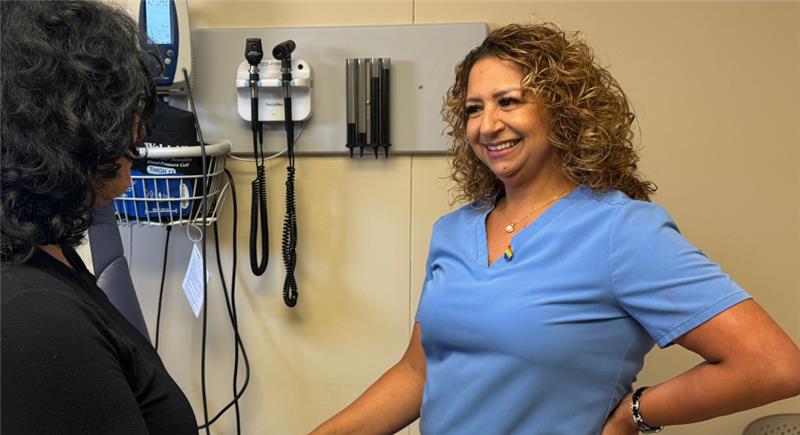Now over a year into the coronavirus pandemic, you might be noticing your eating preferences have become more about convenience and comfort than making responsible choices — and your health may be suffering from it.
COVID-19 weight gain can have mental and physical impacts
The stay-at-home practices put into place during the COVID-19 pandemic were essential in helping slow the spread of the virus. Unfortunately, they also may have gotten you used to some not-so-healthy habits, including:
-
Emotional eating
-
Eating out of boredom
-
Excessive alcohol consumption
-
Not moving or exercising as much
The hardship of living through a global pandemic has brought about increased feelings of stress, depression, grief and loneliness, and to cope, many of us have turned to food.
A 2021 study conducted by the American Psychological Association reports that 42% of adults have reported undesired weight gain, with an average gain of 29 lbs. since the start of the pandemic. One in 10 have reported a gain of more than 50 pounds.
And this weight gain is leading to further problems. To deal with the stress of added pounds, some return to food and alcohol for comfort — and get stuck in what can become a continuous, unhealthy cycle.
What weight gain can mean for your physical health
In addition to the mental and/or emotional toll weight gain can take, there are also physical concerns. Conditions related to obesity include diabetes, stroke and heart disease — all causes of premature death. The CDC says that around 655,000 Americans die yearly from heart disease, and that it’s the leading cause of death in the United States.
While weight gain does not always lead to obesity or health problems, it’s important to consider your brain and heart, and how you can keep both in good working condition with the choices you make. But how do you know what the “right” choices are when it comes to food?
The only diet supported by the American Heart Association
There are a lot of popular products and diets that seem to deliver quick results. And while they might make a difference in how you look in the short term, they may not be as concerned with overall health.
There’s one diet, however, that meets the American Heart Association’s guidelines for healthy eating: the Mediterranean-style diet.
The Mediterranean diet is named for a way of eating that’s popular among the countries that border the Mediterranean Sea. While there is no singular, regulated diet among these various countries, there are common factors that can help promote healthy eating. These include plenty of:
-
Fruits and vegetables
-
Whole grains
-
Beans and legumes
-
Nuts and seeds
-
Olive oil as the main source of fat
And, in low-to-moderate amounts:
-
Dairy products
-
Eggs
-
Fish and poultry
-
Wine
The key in adopting this style of eating is to severely limit sugar, sodium, processed foods, saturated fats, red meat and alcohol (though a glass of red wine once in a while is allowed).
Benefits of the Mediterranean diet
“A Mediterranean diet is one of the healthiest diets one can follow,” says Kristen Coleman, Clinical Dietitian Specialist, Pediatrics, Community Regional Medical Center. “It is also known as the anti-inflammatory diet because it not only treats chronic disease and inflammation but can also prevent disease development.”
She adds, “We now know that chronic inflammation leads to many chronic diseases, such as type 2 diabetes, heart disease and some autoimmune diseases.”
And, the Mediterranean diet is good for your brain. According to the American Psychiatric Association, it may reduce risk of late-life depression.
“The diet’s anti-inflammatory properties can also promote brain health,” says Coleman. “The healthier our diet, the healthier our guts — and new research is showing that gut health is linked to brain health. The better the diet, the happier we are.”
Where to start
So, where do you start with the Mediterranean diet? Try the perimeter of the grocery store.
When you picture your grocery store, think about which foods are typically found along the walls of the store. They’re usually the fresh, perishable items. In the middle of the store is where most of the high-sodium, high-sugar items are found — these are what you want to avoid.
Another tip: seek out Farmer’s Markets for fresh, seasonal food. Or, you can sign up for a local Community Supported Agriculture (CSA) delivery. Here, you receive a weekly or twice-weekly box of fresh fruits and vegetables chosen by local growers, which is a great way to get exposure to produce you might not usually buy.
It doesn’t always have to be about home-prepared meals, though. There are ways to eat takeout and stick to a healthier diet, too.
And, before you start any new diet, be sure to talk to your doctor about your specific health needs and concerns.


.jpg)


